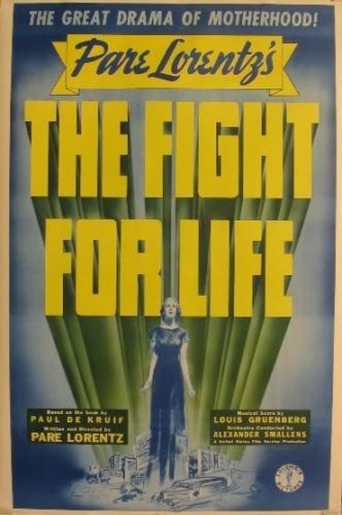GarnettTeenage
The film was still a fun one that will make you laugh and have you leaving the theater feeling like you just stole something valuable and got away with it.
Leoni Haney
Yes, absolutely, there is fun to be had, as well as many, many things to go boom, all amid an atmospheric urban jungle.
Edwin
The storyline feels a little thin and moth-eaten in parts but this sequel is plenty of fun.
Mozjoukine
Pare (`The Plow That Broke the Plain') Lorentz' try to break into Hollywood is unsatisfactory both as the medical training film that they seemed to think they were making and as drama. It stops half way through - presumably to make it a suitable length for a short and then starts up again with another home birth.It is still interesting to watch all this talent stretching themselves - McCormick, later in `The Hustler', Crosby who filmed De Kruif's `Arrowsmith' and `High Noon' - not to mention the B movies of Maury Dexter and Roger Corman and Gruenberg who scored `All the Kings Men.'A lot of the playing is stilted, even by skilled performers like Digges, and the film loses all credibility with its bloodless natal deliveries but the seriousness of purpose of the makers registers and their filming of the Chicago slums remains graphic and alarming.Suzanne Davenport's 1977 "Chicago Maternity Hospital" gets stuck into this one mainly for it's not crediting female medicos with the achievement - other times, other customs!

